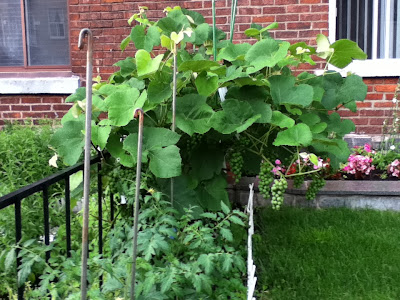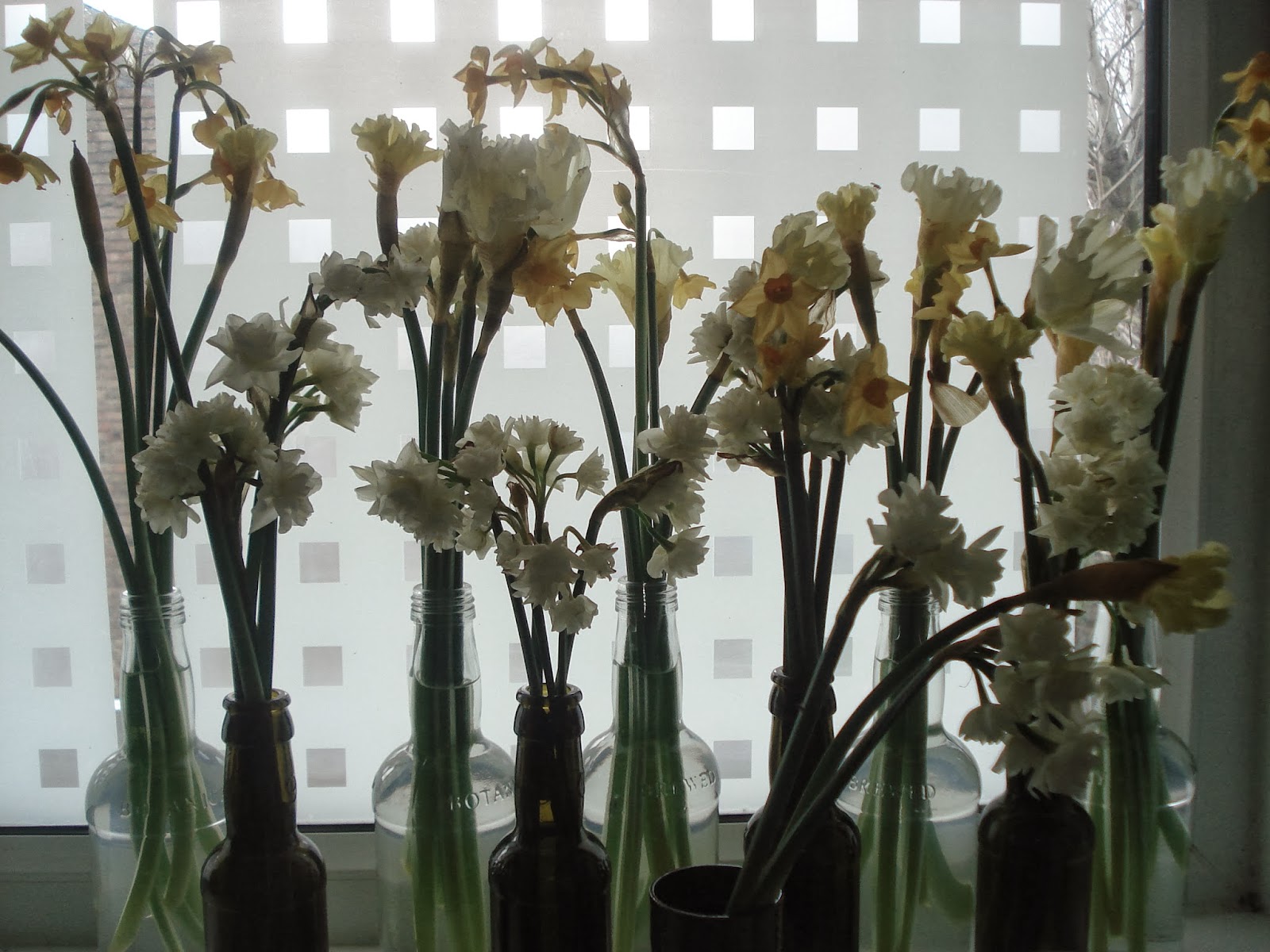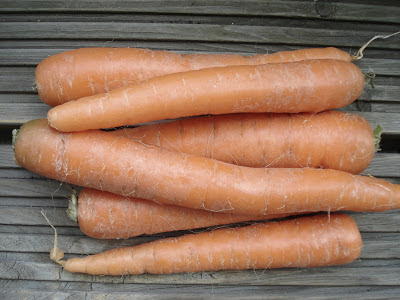A Slip of the Mind
I forgot to mention grapes in my last post. In fact, I've noticed that I forget to mention grapes just about every year. Yet, I have fond memories of hunting for wild grapes of a sweltering July day... There used to be kilometres of wild grapes growing along the Canadian National and Canadian Pacific railways in Montreal. With a little luck, you might still be able to snatch a few -if the Greek yayas and Italian nonnas haven't got there before- but I seem to recall that a good chunk of the vines had been removed because they posed some kind of imaginary danger to the trains.
In any case, even if you do not live in wild grape territory*, July is the time to be on the lookout for special grapes. Although I will probably never taste the grapes I photographed downtown, I am looking forward to biting into Concord grapes. For those of you who are unfamiliar with Concords, they are the grapes upon which 'grape' flavour was modelled. They are nothing like the anonymous red and green seedless table grapes that are available year-round: the Concord reeks of grape-ness. It has a thick, blue fleshy skin that is both tart and sweet, and a jelly-like centre that usually contains a seed or two (although seedless varieties have been popping up of late). As a kid, I enjoyed sucking the juicy centre into my mouth while noisily spitting out the peel before any of the tartness could reach my lips. I've grown up since, and learnt to appreciate the contrast of sweet and tart.
Another grape of note that is a true seasonal treat is the Muscatel. Muscats are true gems in the world of grapes: when perfectly ripe, they are a beautiful golden yellow with the odd brown speckle. They are maddeningly sweet, and have lovely floral and honey notes to them. These grapes are one of the few double duty grapes that perform well: it is an absolute delight as a table grape, and it produce some of the most lovely dessert wines.
Grapes, like most cultivated fruits, are inevitably sprayed with pesticides. However, the fine, white residue found on the surface of grapes is not a remnant of toxic chemicals. It is a naturally occurring wax called pruine in French. It is believed to contribute greatly to the flavour of the grapes, and wine makers insist that it is an important element for good wines. By all means, do wash your grapes before eating them, but do not scrub them until they become spotless!
Bon app'!
*Wild grapes are actually quite hardy, and can be found just about anywhere in temperate North America. The only exception might be where grapes are actively cultivated, in which case the wild plants may have been eradicated to prevent the spread of disease to the vineyard.





Comments
Post a Comment